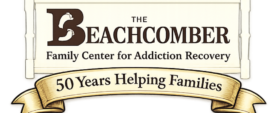Can you force someone into rehab?
There are various ways to attempt and persuade a loved one to go to rehab for addiction. It is crucial to remember that it is totally up to them whether or not they choose to go to therapy. There is no guarantee that they will be prepared to accept aid, even if you take steps to help them realize they need expert therapy. Whether they ultimately decide to receive treatment or not, there are a few things you can try and actions you can take to protect yourself in the meanwhile.
Consult with your physician or addiction specialist
Consult your doctor or drug rehab centers in Florida first for advice on how to approach your loved one. They can offer information on educational opportunities, available treatments, and advice on interacting with your loved one. You are more likely to have a fruitful talk if you are knowledgeable and comprehend the nature of your loved one’s addiction.
Have an honest conversation with your loved one
Set a time when no one is rushing, they are sober, and you have privacy for an honest conversation with your loved one. Set your objective and goal in advance. Be composed, uncritical, and non-aggressive.
Explain how you feel when they engage in certain addictive habits without being accusatory. Give specific instances of how their actions have caused you or others harm. Request their consent to receive therapy. Ask them to attend a support group meeting or a meeting with a person you have recognized as a helpful resource. At least you’ve established a line of contact if they continue to push back. Retry at a different time.
Provide information about treatment options
Offer the addicted loved one specific treatment options. Consult with experts on addiction treatment alternatives, such as inpatient vs. outpatient drug rehab, to determine which is ideal for your loved one’s circumstances while taking financial and insurance considerations into account.
Encourage counseling and attendance at AA, NA, or another support group
Even if your loved one isn’t ready for treatment, joining a support group at Boynton Beach Drug and Alcohol Rehab and getting one-on-one or group counseling are great places to start. Even virtual choices or online support networks might offer comfort. Most cities offer local Alcoholics Anonymous (AA) or Narcotics Anonymous (NA) groups.
Attend family support groups and counseling
In group therapy, families will be educated regarding enabling and understanding the physical, mental, and spiritual effects of addiction on the entire family system. It may also include education, family discussion with a clinician, and group discussion.
Allay their fears about detoxification
Your loved one’s resistance to therapy can be partially motivated by anxiety over the detoxification procedure. Assure them that they will receive medically supervised detoxification at an addiction treatment facility, which may include prescription medication to alleviate any unpleasant side effects.
Set boundaries and refuse to enable addictive behavior
Although establishing boundaries with an addict can be challenging, doing so can help the addict start the crucial recovery process. Almost all of us can speak to having a family member who has battled addiction, whether it is to alcohol, drugs, or porn. Establishing healthy boundaries is an important relationship skill, especially when you are in a relationship with an addict. Look for books such as Boundaries: When to Say Yes, How to Say No to Take Control of Your Life by Henry Cloud and John Townsend. Require your loved one to accept responsibility for their own behavior in addition to establishing limits. You can show support for your loved one without blaming them.






